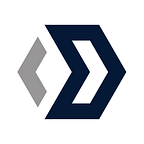Blocknet to scale development effort, foregrounding Ethereum support for Block DX
7 Feb 2021, Boston – with the Blocknet’s core components in production, it is positioned to bring a variety of strategically important products and tools to market. To achieve this, it is parallelizing its development, with the hire of developers in a variety of languages, and a more tightly focused, granular costing and management methodology. A key focus of this new approach is to bring ERC20/ETH support to the most decentralized exchange in existence, Block DX. Alongside this is to make Block DX’s. core component, XBridge, available as a JavaScript library to enable wider use in the web3.0 ecosystem, allowing developers to integrate the Blocknet’s interchain trading technology into their dapps.
This new approach coincides with the departure of Michael Madgett, a principal contributor over the past three years. Michael spearheaded a migration to the Bitcoin codebase, implemented many security checks in XBridge, improved code quality across the board, and developed XCloud, the Blocknet’s microservice cloud network for the edges of the interchain. We are very grateful for Michael having built the Blocknet protocol into what it is today, and are extremely excited for what the future holds as the next phase of development begins.
The goal: a decentralized blockchain ecosystem
The Blocknet’s new roadmap was recently announced, returning focus to its goal of building out interchain infrastructure and tools that foster the development of a completely decentralized blockchain ecosystem. No other “interoperability” project is decentralized at the interchain level itself, instead either placing a single blockchain’s consensus, or the agreement of a small group of individuals, at its center. In contrast, the Blocknet relies on the finality reached by interoperating blockchains themselves, and enables users to prove chain state without hosting the chain locally. With an upcoming product suite of dApps, libraries for interchain trading, and Hydra enhancements such as GraphQL support, history per address, and UTXO per address, a decentralized interchain is becoming a reality.
Block DX: uniquely positioned
Unlike the current raft of Ethereum DEXes, Block DX is not vulnerable to frontrunning or impermanent loss. Additionally, it is not confined to the Ethereum chain, currently supporting over 125 blockchains, enabling fast cross-chain swaps between any two of them with minimal fees. Yet the upcoming support of Ether and ERC20 trading in a non-malleable way is still more significant: it will become possible to trade ETH and every ERC20 token without being frontrun by miners and bots. Additionally, liquidity providers will not be vulnerable to impermanent loss, making it more profitable to make markets on Block DX than on other DEXes.
Incoming: interchain DeFi
DeFi, or decentralized finance, is an emerging disruptive force in the financial world, and yet to date, it is confined mostly to the Ethereum blockchain. This prevents the innovations of several thousand other blockchains from easily providing their services, and it prevents even Bitcoin from functioning as a full citizen of the DeFi ecosystem.
However, with the Blocknet’s interchain infrastructure, Bitcoin and effectively every other blockchain in existence may interoperate with Ethereum, enabling DeFi to exploit the many untapped innovations in the blockchain ecosystem, and enabling DeFi to embrace blockchains with characteristics optimised for a variety of use cases. An interchain DeFi ecosystem entails far greater efficiency, speed, security, and market-fit than is possible on Ethereum alone. Meanwhile, instead of robbing Ethereum of potential, it equips it with the ability to harness the broader ecosystem’s many innovations.
With the Blocknet’s new roadmap and developer hires, an interchain future just got a lot closer.
